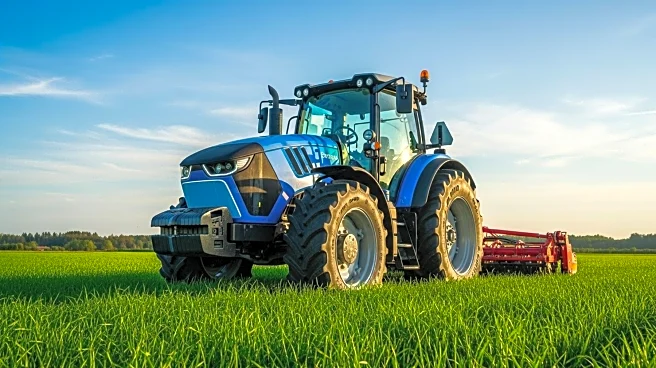What's Happening?
The global electric farm tractor market is anticipated to grow significantly, reaching USD 426.67 million by 2033, according to a report by Straits Research. This growth is driven by the increasing adoption of electric tractors, which are powered by electric motors and battery systems, offering advantages such as lower maintenance costs and reduced emissions. The market expansion is supported by rising fuel prices and government initiatives promoting eco-friendly farming technologies. Despite challenges like limited charging infrastructure and competition from rental equipment services, precision farming offers new growth opportunities for electric tractors.
Why It's Important?
The shift towards electric farm tractors represents a significant move towards sustainable agricultural practices. This transition is crucial as it aligns with global efforts to reduce carbon emissions and promote environmental sustainability. The adoption of electric tractors can lead to cost savings for farmers, enhancing their profitability and operational efficiency. Additionally, government-backed programs and subsidies are expected to boost demand, particularly among small and medium-scale farmers, fostering innovation and modernization in the agricultural sector.
What's Next?
The market is expected to see further advancements in battery technology and electric drivetrains, which will likely enhance the performance and reliability of electric tractors. As precision farming continues to gain traction, electric tractors will play a pivotal role in optimizing resource use and improving agricultural yields. The expansion of charging infrastructure and increased government support will be critical in overcoming current market challenges and accelerating the adoption of electric farm machinery.
Beyond the Headlines
The rise of electric farm tractors could lead to long-term shifts in agricultural practices, promoting a more sustainable and efficient farming industry. This transition may also influence the development of related technologies, such as smart farming solutions, further integrating technology into agriculture.










